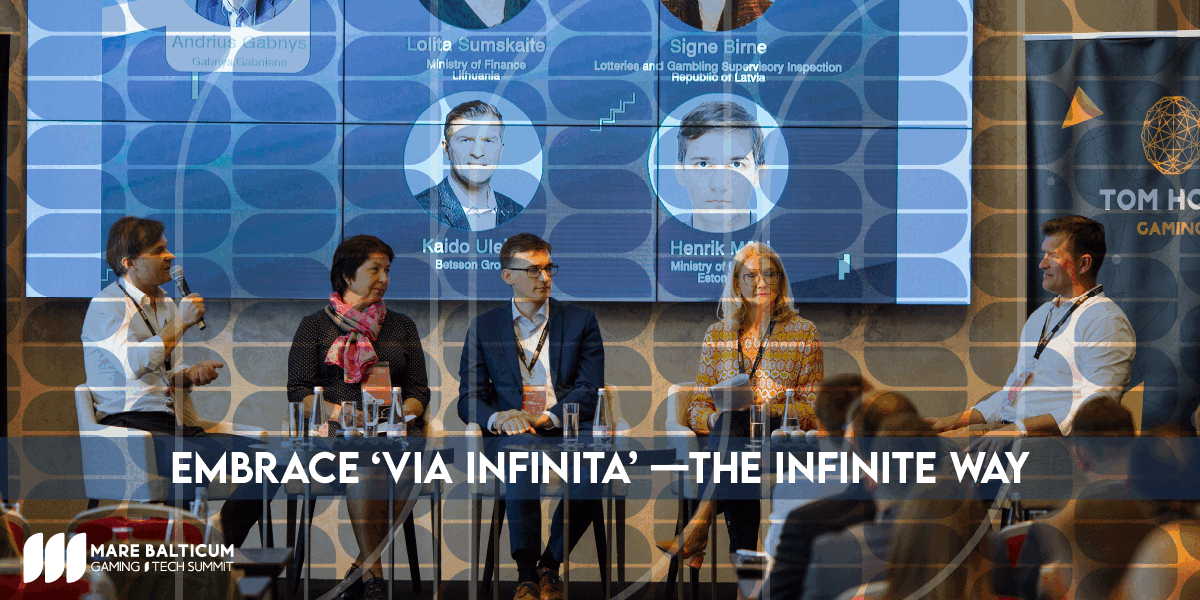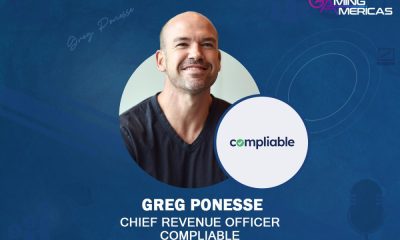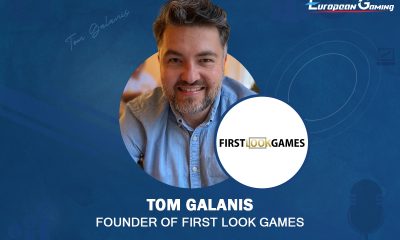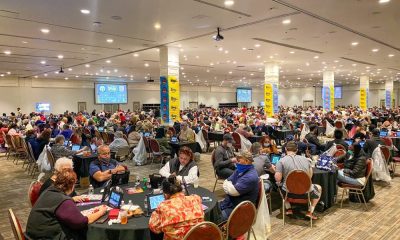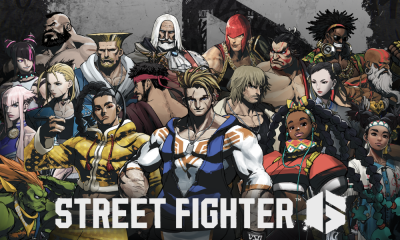Interviews
Mark O’Hare: The sky’s limit for The Unit and Red Knot
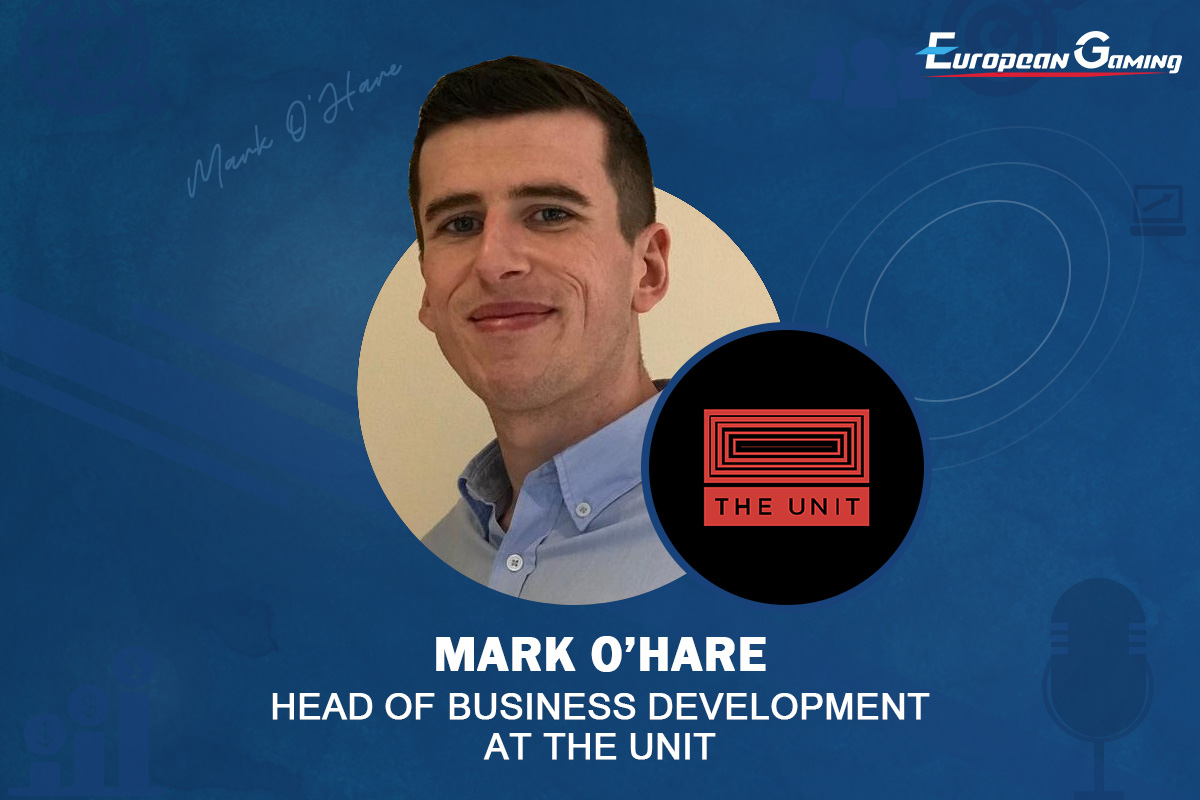
We speak to The Unit’s Head of Business Development Mark O’Hare about the company’s strategic alliance with PR and communications specialists Red Knot Communications, which was announced last year…
Can you let us know a little bit about what Red Knot does and why The Unit and Red Knot decided to enter into a strategic alliance?
We’ve worked with Red Knot since the summer of 2023, after a successful spell of Red Knot providing their PR and media services to us, particularly in the B2B domain. We knew they had worked with some of the biggest names in media, and we were instantly impressed with the support they’ve given us and the press coverage they have been able to generate from press releases, interviews, thought leaderships and social media marketing.
Very quickly, though, we established a crossover between the two companies whereby we could exploit some natural synergies. By way of an instructive example, just take my own position role, which began as Head of Business Development for The Unit. More recently, though, I’ve performed a twin-track biz-dev role for both companies. At The Unit, software development is a core part of the business and we have a talented marketing team that does traditional marketing like SEO, PPC, social media etc. However, our clients often also asked us about PR services, which was something we didn’t have the expertise in-house to provide. In the past, we would have simply handed that off to Red Knot. But now The Unit’s Co-Founder Paddy Casey and Red Knot’s Co-Founder Andy Clerkson (who had previously worked well in tandem at Grand Parade) thought I could manage sales for both and oversee how these complementary connections interlink, creating organic efficiencies from which to scale both businesses, rather than oscillating from one to the other in more disjointed fashion.
This is quite an interesting partnership, because the two companies come from very different areas, so what brings Red Knot as a media company in line with a software development company like The Unit and vice versa?
We have talked to clients in the past and interpretations of PR can be quite different, from the more traditional to the increasingly technical. For example, some just want PR to be back-linking and SEO, which was not necessarily Red Knot’s initial expertise. But the scope of its services has now evolved to include this, thanks to The Unit’s input. As in any domain of discourse, you have to embrace the latest tools of innovation and tech if you want to distil clear messaging and engage with your target audience. Nowadays, some people’s perspective of PR speaks to a more technical side which we have the experience in, so we can help each other by combining both.
How does your role differ from what you were doing for The Unit previously?
For The Unit, my day-to-day responsibilities varied from account management to working on sales leads or assisting in marketing projects, whereas Red Knot is more streamlined for me to focus on the sales process. Red Knot had a structure in place for lead management and outreach that we’ve been able to incorporate into The Unit’s structure. The role can develop as I continue to learn about what works well for both companies and I’m learning a lot.
How have you found the challenge of splitting your time between both companies?
That’s something that’s played out differently to how we may have thought. It isn’t as simple as having a set structure of focusing on The Unit in the mornings and on Red Knot in the afternoons, and I just have to be honest with myself and both companies about what I’m able to do. Some days I might work on a proposal for a The Unit client and then work on a different project for Red Knot. You have to work around time zones as well, because Red Knot’s team are spread out across Europe and the US, whereas the team I work closest with at The Unit is based in Dundalk, Ireland. I’d been at The Unit for five years and knew how we operate. From my experience now with Red Knot, I’d say both cultures are very similar, so that certainly helps.
How likely is it this partnership could expand with more staff or services?
I think there is huge potential to expand the partnership. There will certainly be other colleagues representing both sides of the business in due course. That’s not something we’ve put into place yet, but we’ve already entered mature conversations for the next phase, and ICE London (6-8 February) will see us unveil the next building block in this lockstep journey.
I personally feel the sky is the limit, because both companies are growing and can help each other in so many ways, as we seek to optimize our strengths and deliver exceptional services across the dynamic world of igaming and sports betting. I couldn’t put a timeline or a figure on things, but our growth in the last 12 months has been fantastic and we wish to continue that. The opportunity is now as palpable as it is obvious. After all, our respective skill sets, target territories and client lists are totally complementary. This global partnership crystallises a hive mind of two successful companies, comprised of very experienced gaming industry professionals who can supercharge marketing for any B2C or B2B gaming or betting brand, anywhere in the world.
Interviews
Riding the winds of change
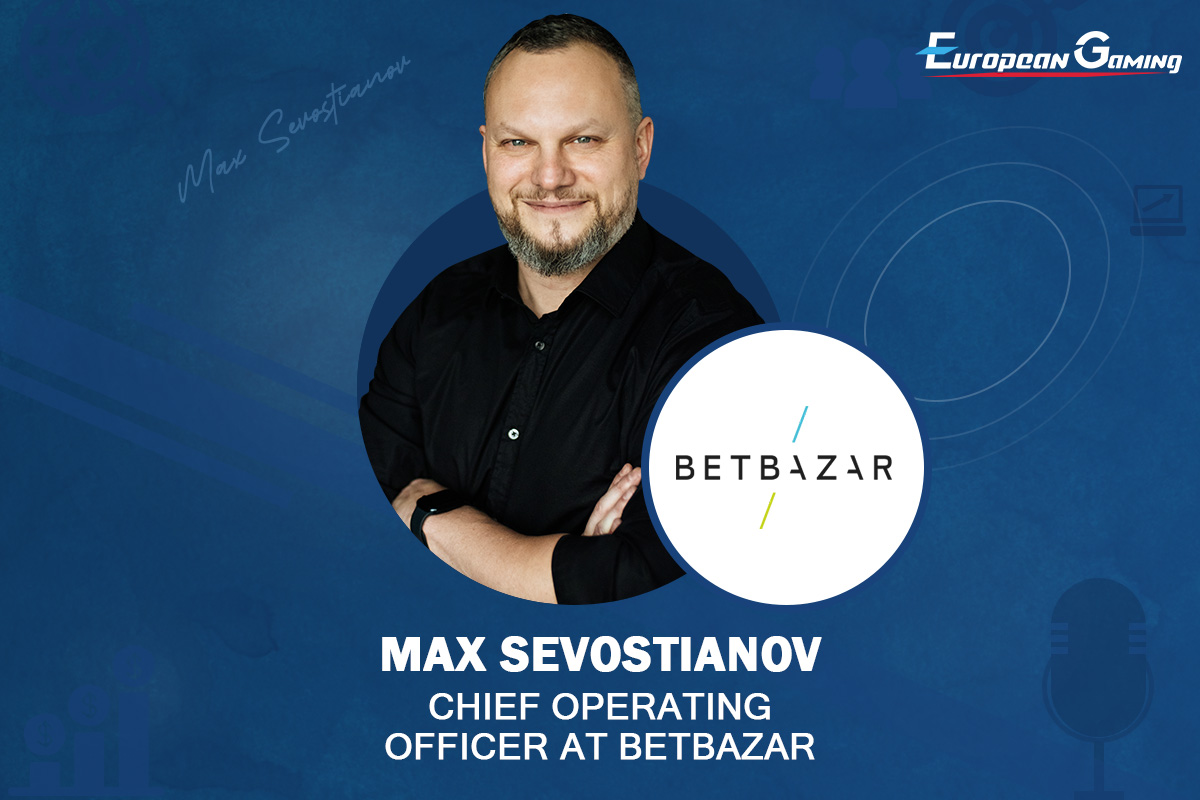
With the iGaming industry currently experiencing a perfect storm of evolving technology, progressive regulation and increased internet penetration, we sat down with BETBAZAR’s Chief Operating Officer, Max Sevostianov, to get his take on the latest emerging trends for operators to keep an eye on and how they could potentially alter the gambling landscape in the next few years.
You’ve previously spoken about the increased adoption of AI being one of the most notable recent developments in iGaming, but outside of this technology are there any other notable emerging trends that you think will play a major role in shaping the future of the industry?
From my perspective the growing prevalence of mobile gaming continues to have a major impact on how the iGaming industry is evolving. Driven by the increased availability of smartphones/tablets and greater internet penetration, mobile gaming offers unparalleled accessibility and convenience, which in turn enables users to enjoy their favourite games anytime, anywhere. Somewhat related to that, I think we’re also seeing live streaming platforms become much more popular and channels like Twitch – which is now the go-to medium for esports coverage – are becoming an essential part of operators’ toolkits. Finally on a more personal note, I’m a big believer in the potential of VR and AR technology. With recent games like No Man’s Sky providing immersive VR experiences where players can really feel the emotion of what it might be like to command their own spaceship, I really think the entertainment they provide will be key to the future of iGaming.
Looking specifically at the changing gaming preferences of customers, it seems that player interaction and community involvement are becoming increasingly important to operators looking to generate sustained user engagement. Do you expect products like crash games and bet-behind slots that offer these social aspects to become even more popular in future?
Definitely. Whether it’s having multi-player compatibility or providing social aspects that allow users to engage with each other and share the betting experience, any product feature that promotes unity will play an important role in increasing audience engagement. You only need to look at recent high-quality titles like Helldivers 2 to see how effective these gameplay elements can be. Here, the developers have created a co-operative third-person shooter where players compete in teams, invite their friends and socialise with one another to create a more immersive experience. I think when analysing this type of game, you have to make a distinction between the gambling side of things and the entertainment aspect – and I’m a big believer in the value of the latter, as this is what will ultimately provide the user experience that keeps players coming back.
Likewise, when it comes to sportsbooks, live streaming and in-play betting – especially micro-betting – seem to be major focus areas for operators these days. Does the availability of better technology for higher-quality streams, more accurate live data and real time interaction now make it even easier for operators to provide a more immersive experience?
I believe at this moment in time, having the capability to supply fast gaming and fast betting is one of the biggest priorities for sportsbook operators. Advances in technology have made it possible to provide better quality live streams and more accurate live data feeds, which in turn enable bettors to make more informed decisions in real time. This of course goes hand-in-hand with live betting and micro betting, as having this up-to-the-second information available gives bettors more confidence in what they’re doing and empowers them to make quick bets on the fly. I think from the operators’ side of things, having access to official data providers has also made a big difference, as they are now able to work with reliable data that not only helps them provide a fairer and more enjoyable experience to users, but also assists them in analysing their business as well.
Finally, in terms of how new iGaming trends are formed, what is it that you think drives change in the industry? Is it shifting regulations, the emergence of new technologies or evolving player preferences/demographics that mainly informs how operators will respond?
The formation of new iGaming trends is driven by a combination of factors – and while in the long term I think the three you’ve mentioned are pretty much parallel, at this precise moment in time I’d put regulation in first place. All countries are trying to provide a healthy environment in which iGaming businesses can grow while also ensuring that player safety remains a key consideration. This is great, because it means that in regulated markets there are clear and understandable rules about what businesses can and can’t do, so they’re all starting from a level playing field. This obviously has a knock-on effect on how technology develops, as once these parameters have been set, your aim is to provide the best product you can within the constraints of that framework. Of course, player preferences also play an big part and regulators are often slow to cotton on to things like the popularity of esports, but over time they’re usually able to adapt to public demand.
The post Riding the winds of change appeared first on European Gaming Industry News.
Holly Fairweather Head of Account Management at House of Brands provider White Hat Studios
Women in iGaming Interview: White Hat Studios’ Holly Fairweather
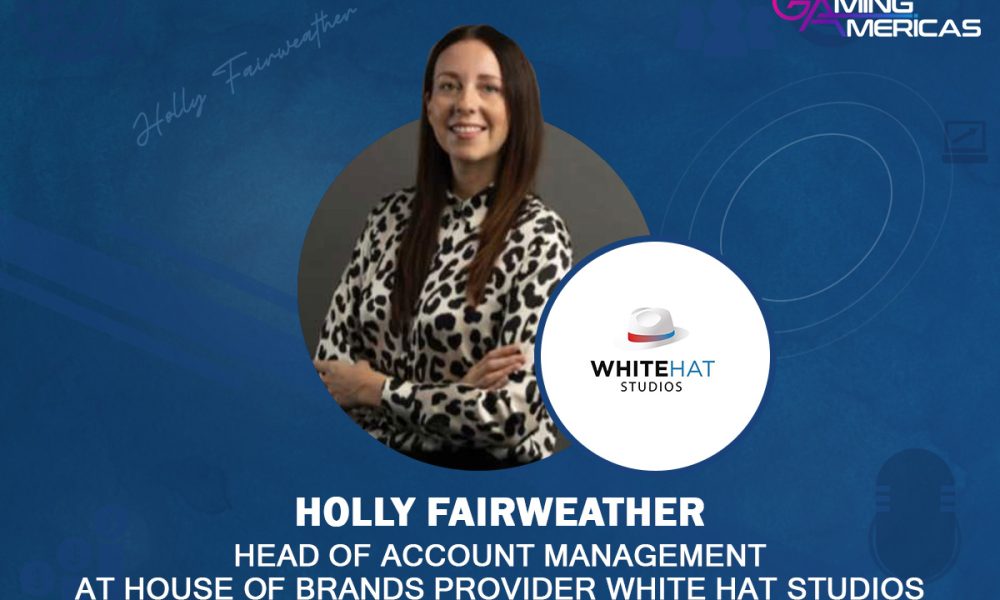
Holly Fairweather, Head of Account Management at House of Brands provider White Hat Studios, sits down with Gaming Americas to discuss the growing influence of women in the iGaming industry, and highlights how more can be done to improve the overall gender imbalance
Gaming Americas: Since joining the industry in 2018, have you noticed a change in how women are represented within iGaming companies, as well as general attitudes?
Holly Fairweather (HF): When I reflect on the past six years, it feels great to say I have seen a lot of positive changes in our industry and more importantly, an ever-increasing drive to address gender diversity. There is still work to do, and I am reminded of this attending our industry events, where it’s very evident we still lack female presence in C-level roles and on expert panels. It’s also not hard to see walking around conferences the overall gender imbalance that exists. With that being said, I do feel it’s moving in the right direction and I am regularly inspired by women around me being promoted to senior management roles, providing great mentors and role models. Awareness of gender diversity and celebrating success is continually being pushed via various channels, and for me plays a big part in why we are seeing more women have the confidence to progress in their careers and more women enter the industry. It’s also important to say, and why I think change is happening more, that the want of women to succeed and to increase female presence in our industry, is indeed backed by a strong support network of women supporting women, but also of the men in our industry.
Gaming Americas: How important are groups like Global Gaming Women? What kind of initiatives have they offered to help your own career development?
HF: I’ll be honest, I’m still learning about all that Global Gaming Women offers. Working in the US market I see GGW as a substantial network which offers reams of support from training courses, lean in circles and mentorship and networking events just to name a few. I have taken part in a few of the industry wide networking events, and really enjoyed them, connecting with some amazing people, learning more about the industry. One of my objectives this year is to participate in more events, adding value where I can whether that’s within the GGW network or through other avenues.
Gaming Americas: What more can the industry do to make it more appealing to women and ensure they are better represented within organizations?
HF: It’s got to start within each individual company taking responsibility for equal representation. This is not a tick box exercise to achieve a target on a gender split % by x date but must be about promotions and roles being rewarded to the best candidate for the role, regardless of gender, ethnic background, or sexual orientation. We need to shout about the success stories of DEI within the industry, creating an inclusive work environment will attract not just more women but more candidates overall, increasing the talent pool.
There is also a piece around exposure and shining the light on the fantastic women we have leading the way. Sharing their career paths, the good, and the challenges, to provide relatable examples of success. To make women in gaming not about the stats or portray the headline as a negative but more around showcasing the women that are successful and why, helping more women relate and pursue a similar path if this is what they wish to do.
Gaming Americas: What advice would you give to the next generation of women that are looking to make a breakthrough in the industry?
HF: This is a good one! First and foremost, you lead your own progression. Be proactive in building your network, push yourself out of your comfort zone to attend networking events. Reach out to other women in the industry for support and mentorship. That is on you to drive.
Immerse yourself in a team with values that align with yours, a team that welcomes and promotes diversity of all types and supports and rewards on merit are key.
Build your knowledge, for me knowledge is confidence. Quickly realise it is ok not to know everything, ask the questions and find out. Be solution-oriented, supporting your superiors will get you noticed for going over and above and adding value to your team and company.
I was told ‘people do business with people,’ which I stand by and could not be truer in the igaming industry. Always treat everyone with respect, be kind, be yourself, but don’t forget to back yourself! Relationship building is so key in this industry and has helped me progress to where I am today.
Lastly, take risks. And by this, I mean sometimes you must step out your comfort zone and push yourself to try something different to progress to the next stage. So far, the most pivotable moment in my career and biggest risk I have taken, and I’m sure Andy Whitworth (CEO) and the White Hat Studios (WHS) team won’t mind me saying, was accepting the job at WHS. A brand-new supplier to the US, no content live alongside the fact I had never worked in the US market, so of course there was an element of risk. It was, however, a calculated risk as I was joining a team of experts, senior level management I had worked for previously, in an ever-growing US market. A no brainer now when I look back.
Gaming Americas: From a White Hat Studios perspective, what DEI initiatives does the company put in place?
HF: DEI of all types is something I believe increases the performance of a team, and is something we are extremely passionate about at WHS. As we grow and expand, maintaining a strong culture has never been more important. We recently held a WHS workshop in Prague, with one section of our day spent holistically agreeing and locking down our values as a team, ‘Who we are, what we stand for ‘and ‘treating everyone equally’ is now embedded in our company culture as one of our five core values.
I have been lucky in the fact I have never felt that my gender has held me back in my current role and previous igaming companies. Although I understand this has not been everyone’s experience, I truly believe the more we celebrate success, drive awareness, embed inclusion within our companies, and work together across DEI as a whole, we will continue to see women progress and take on careers in igaming.
Compliable
Reputation matters – the importance of supplier licensing
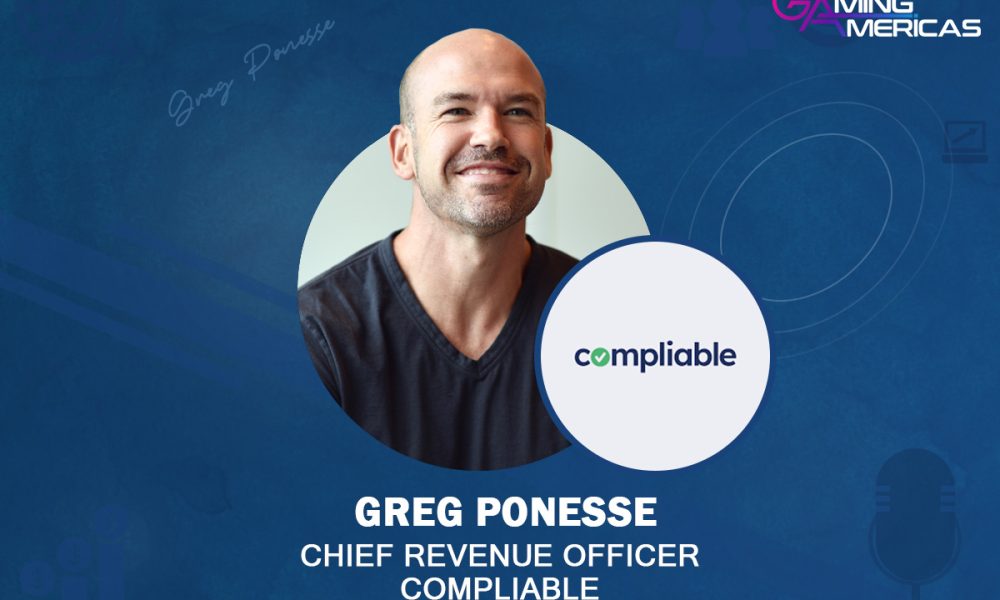
More and more jurisdictions are introducing licensing for B2B providers in an attempt to boost regulatory oversight and restrict black market activity with Sweden and Denmark recent examples. In this piece, we talk to Greg Ponesse, Chief Revenue Officer at Compliable, about how the increased compliance burden can favour suppliers’ standing in the iGaming ecosystem.
Have you seen a shift in attitudes from suppliers to only provide products in regulated markets?
We have seen that suppliers that have traditionally taken a .com approach are starting to move towards being licensed to secure additional revenue and more customers but also to improve their overall reputation and standing. The perception of brand integrity plays a big part of the decision-making process because some operator partners might be reluctant to work with suppliers if they have a mainly grey-market approach.
In the US, supplier licensing has always been the norm, so where we are seeing attitudes changing is primarily with European suppliers. Although most suppliers might have a few licenses that they need to manage in key markets, they are now better understanding the importance of being seen as fully compliant across the board as regulation changes and operators are looking for trusted partners.
Some of these brands are massive enterprises who are now trying to get a handle on how to manage all their licenses across multiple regions, and we have seen an increased interest in our software to support that.
What has been the driving force for this – regulator pressure or business strategy?
It’s a little bit of both. Regulator pressure is definitely a big one as gambling becomes more ubiquitous and mainstream. It’s the responsibility of the government to provide structure and regulation to ensure safety for consumers and many are starting to realize that suppliers play an equally important role in that as operators. We have recently seen examples of locally licensed suppliers being fined by regulators for offering their products to unlicensed operators, so providers need to be on the ball to ensure their reputation stays intact.
That said, the grey market suppliers up to this point have stayed in grey markets because that’s what was available to them. Now you’re seeing new markets opening up like North America, which has been huge, where all states require suppliers to be licensed. These grey market players that have previously focused on Europe now see that there’s revenue over there to be gained, so they need to pull up their socks and play the game.
As a business strategy, suppliers can only remain in black markets for so long, avoiding paying taxes and declaring revenue. In a competitive marketplace, suppliers can definitely benefit from being more established and having numerous licenses. Operators might be wary to work with companies that don’t take compliance seriously so being able to show that you have X number of licenses and that you have infrastructure in place shows that you’re serious, and that you know what you’re doing. It kind of sets the table for you to have a soft landing and to be able to begin those discussions with potential partners.
A sole focus on regulated markets would suggest a negative impact on profits so what benefits do suppliers see from being licensed?
If the train is only going in one direction, you eventually have to hop on it. Moving away from grey markets will inevitably have a negative impact on profits but you then have to look at where you can find additional revenue. If you are a licensed supplier, it does allow you to work with the big local operators. You have to decide on whether you can make more money as a grey-market supplier or by going into markets being licensed and making the most of what that offers.
Do you expect more jurisdictions will introduce B2B licensing going forward?
Yes, for sure. Gambling is ubiquitous now and governments recognise that it’s a great revenue generator for them and it also helps with ensuring responsible gambling. With licensing, you provide a framework, infrastructure, and environment that is safe, and it ensures that everyone is on a level playing field. That needs to include all different sides of the industry such as operators, suppliers, affiliates etc. If everyone in the ecosystem follows the rules, it will be a better place for all.
What are the big challenges that suppliers face when it comes to licensing in 2024 and beyond?
Your licensing strategy, so basically, where you are going to go get licensed. This process takes time and resources, and you want to make sure you are prepared before you start talking with operators. They will want to know, just like as with any other vendor, if you are licensed as a supplier.
If we use the US as an example, there is no shortage of suppliers that want to partner with the available operators, so you need to know who you want to work with and where, and then you have to make sure you sort those applications properly. That is all about getting the right advice or using software because if you fail the process, you will end up at the back of the queue and your go-to market strategy will be delayed.
What, if any, are the key differences between licensing in the US and regulated markets in Europe and other regions around the world?
For starters, every state in the US acts as if it is its own country and the licensing process is very complex and rigorous. In Europe, it was initially somewhat more relaxed. You got your Malta licence, and that was then good for all countries in Europe. We’re now seeing a bit of backtracking, with more and more countries getting tougher on rules and regulation.
Increased supervision, with regulators having more oversight, means there is no hiding and I think that is what we’re moving towards on a global scale.
I do believe that most suppliers and operators prefer a regulated market because it separates proper companies from the bad ones. If I was a large operator or supplier that invested time and money into licensing and establishing a compliance team, I would feel good about that because there are so many companies that can’t do it. There’s this element of pay to play, so to speak, in order to really maximize your profits in a region.
-

 Latin America7 days ago
Latin America7 days agoPaysafe strengthens US iGaming solution with Pay by Bank launch
-

 Clark County6 days ago
Clark County6 days agoClark County residents can bring a friend for free to next week’s Super Bingo $160,000 tournament at the Plaza Hotel & Casino, May 6-8
-

 Meridianbet6 days ago
Meridianbet6 days agoMeridianbet to Offer Extensive Betting Options for the Kentucky Derby 2024
-

 Industry News6 days ago
Industry News6 days agoGenome and Chilli Partners join forces to revolutionize iGaming affiliate payouts
-

 Nasdaq:CHDN6 days ago
Nasdaq:CHDN6 days agoThorpedo Anna Claims the Lilies for the 150th Running of the Longines Kentucky Oaks
-

 Angela Bernhard Thomas6 days ago
Angela Bernhard Thomas6 days agoCAPCOM’S STREET FIGHTERTM 6 GOING TO COLLEGE THIS FALL
-

 Baltics3 days ago
Baltics3 days agoGiG continues regulated market expansion growth, with new launch in Estonia
-

 Industry News6 days ago
Industry News6 days agoMeridian Donate: Revolutionizing CSR in the Betting and Gaming Industry

